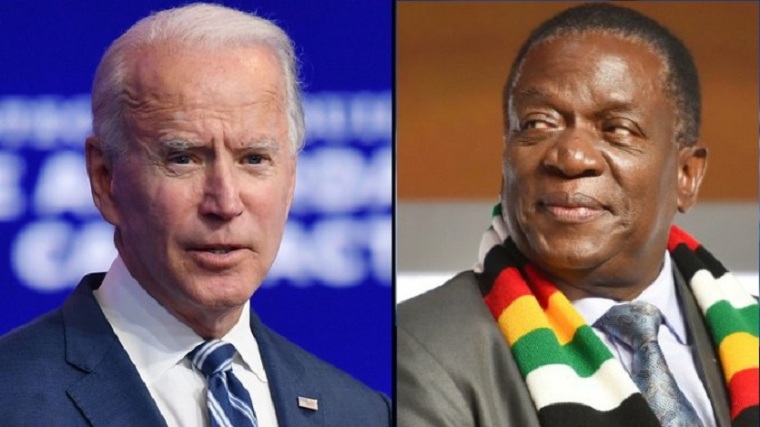 The United States has extended sanctions on Zimbabwe, which have been in force since 6 March 2003, by another year.
The United States has extended sanctions on Zimbabwe, which have been in force since 6 March 2003, by another year.
According to one of the two notices, the sanctions are being extended because actions and policies of certain people in the government of Zimbabwe pose an unusual and extraordinary threat to the foreign policy of the United States.
Another notice says, the sanctions are being extended because Zimbabwe President Emmerson Mnangagwa has not made the necessary political and economic reforms that would warrant terminating the existing sanctions
“Throughout the last year, government security services routinely intimidated and violently repressed citizens, including members of opposition political parties, union members, and journalists,” the notice says.
“The absence of progress on the most fundamental reforms needed to ensure the rule of law, democratic governance, and the protection of human rights leaves Zimbabweans vulnerable to ongoing repression and presents a continuing threat to peace and security in the region.
“The actions and policies of certain members of the Government of Zimbabwe and other persons to undermine Zimbabwe’s democratic processes or institutions continue to pose an unusual and extraordinary threat to the foreign policy of the United States.”
Below are the two notices in full:
CONTINUATION OF THE NATIONAL EMERGENCY WITH RESPECT TO ZIMBABWE
On March 6, 2003, by Executive Order 13288, the President declared a national emergency and blocked the property of certain persons, pursuant to the International Emergency Economic Powers Act (50 U.S.C. 1701-1706), to deal with the unusual and extraordinary threat to the foreign policy of the United States constituted by the actions and policies of certain members of the Government of Zimbabwe and other persons to undermine Zimbabwe’s democratic processes or institutions. These actions and policies had contributed to the deliberate breakdown in the rule of law in Zimbabwe, to politically motivated violence and intimidation in that country, and to political and economic instability in the southern African region.
On November 22, 2005, the President issued Executive Order 13391 to take additional steps with respect to the national emergency declared in Executive Order 13288 by ordering the blocking of the property of additional persons undermining democratic processes or institutions in Zimbabwe.
On July 25, 2008, the President issued Executive Order 13469, which expanded the scope of the national emergency declared in Executive Order 13288 and authorized the blocking of the property of additional persons undermining democratic processes or institutions in Zimbabwe.
The actions and policies of certain members of the Government of Zimbabwe and other persons to undermine Zimbabwe’s democratic processes or institutions continue to pose an unusual and extraordinary threat to the foreign policy of the United States. For this reason, the national emergency declared on March 6, 2003, and the measures adopted on that date, on November 22, 2005, and on July 25, 2008, to deal with that emergency, must continue in effect beyond March 6, 2021. Therefore, in accordance with section 202(d) of the National Emergencies Act (50 U.S.C. 1622(d)), I am continuing for 1 year the national emergency declared in Executive Order 13288.
This notice shall be published in the Federal Register and transmitted to the Congress.
JOSEPH R. BIDEN JR.
THE WHITE HOUSE,
March 3, 2021.
Continued next page
(123 VIEWS)






0 Comments